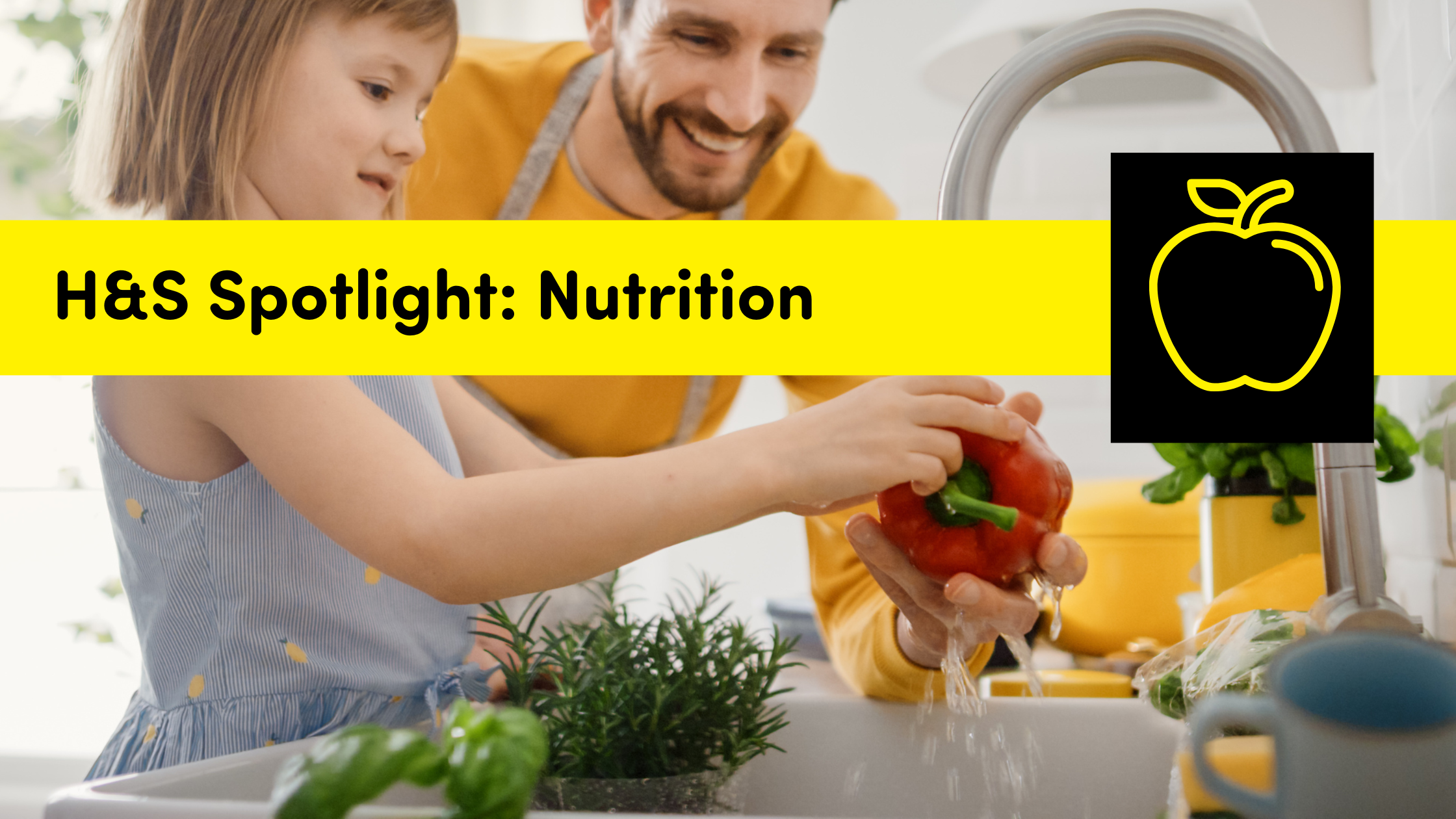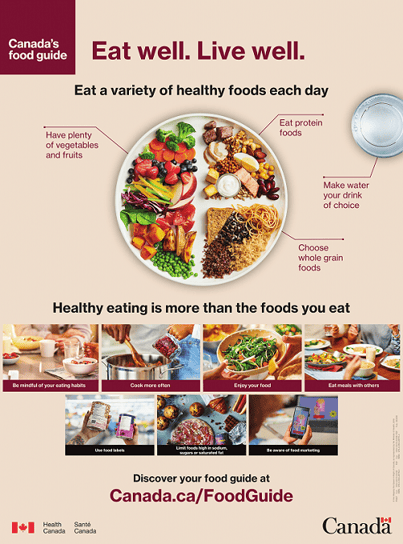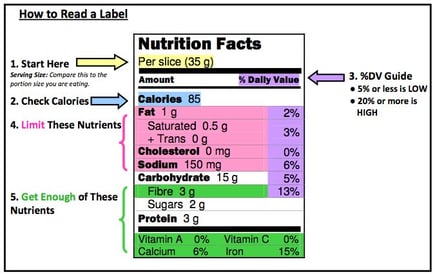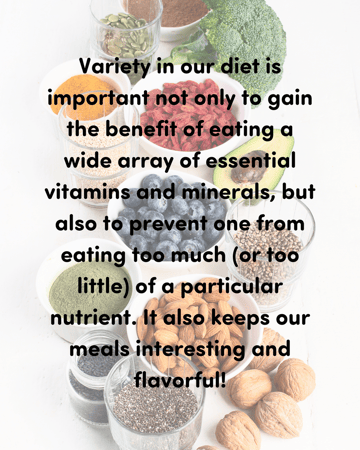When thinking about Health & Safety, we often don't consider nutrition as part of the equation. But nutrition plays a big part of how you feel, your energy level, ability to focus and your memory. So, nutrition is actually a very important part of your Health & Safety plan. A balanced diet full of fresh fruit and vegetables, whole grains and proteins can keep you safe as well as healthy.
High-quality “fuel” helps your brain function at its best. Foods with vitamins, minerals, and antioxidants nourish your brain and protect it from oxidative stress, which is an imbalance between the production of free radicals (molecules with one or more unpaired electron) and antioxidants (substances that neutralize or remove free radicals by donating an electron) in the body, which can lead to cell and tissue damage.
On the flip side, low-quality “fuel” can damage your brain and its functions. Processed or refined foods (including refined sugar, for example) fall into this category. These foods diminish your ability to regulate insulin and increase inflammation and oxidative stress. In fact, many studies found links between sugary diets and impaired brain function—and even mood disorders.

A lifetime of eating right and maintaining a balanced diet can help prevent many chronic illnesses that are on the increase in Canada. As our population ages, we are understanding that a diet full of processed foods, sodium and sugar can have long term affects. A poor diet can result in Type 2 diabetes, hypertension, heart disease and stroke, some cancers and overweight and obesity.
The benefits of healthy eating:
So obviously the benefits far outweigh the risk. So why don't we eat better? Easy access to fast food, not understanding what is in our food, time constraints and convenience drive our insatiable demand for processed foods. In fact, food marketing, urban planning and groceries stores are all trying to keep you in the drive-thru lane.
However, a few small changes are all you need to begin to feel the effects of better nutrition. Don't try to do it all at once. Small steps made consistently, are the secret to changing your food habits.

In 2019, The Canada Food Guide was updated for the first time since 2002. Health professionals, dieticians, nutritionists and food experts from Canada and across the globe were consulted to create an easy food guide for all Canadians.
Food groups and portions are a critical element of Canada's food guide. With a little planning and knowledge, you can make big improvements.
But it's not just about the foods you chose. You can help yourself make better choices by:
Being mindful when eating. Stay off your phone and savour each bite.
Cook more often. Cooking allows you to control the ingredients as well as sodium and sugar. Hidden sugar, trans fats and sodium in processed foods are a big contributor to high cholesterol.
Eat with Others. We are all striving for more connection. Breaking bread with others is a great way to share cultures, celebrate traditions and experiment with new foods.
Looking for more non-food ideas to help with your healthy eating? Check out the Canada's Food Guide.

If you have a food allergy, or food intolerance you are familiar with food labels. If you're like most Canadians, you go to the grocery store list in hand and grab what you need, pay and race back home. Grocery shopping and in particular food labels, are a great way to start your healthy eating journey.
Canadian legislation requires food manufacturers to provide nutritional information on their labels. Understanding how to read food labels can help you take control of what you eat.
What can a food label tell you? By law, all prepackaged foods must have the following:
 https://www.unlockfood.ca/en/Articles/Nutrition-Labelling/Understanding-Food-Labels-in-Canada.aspx
https://www.unlockfood.ca/en/Articles/Nutrition-Labelling/Understanding-Food-Labels-in-Canada.aspx
The Nutrition Facts table gives you a lot of useful easy to understand information:
It must include the serving size, calories, % Daily Value and 13 core nutrients (fat, saturated fat, trans fat, cholesterol, sodium, carbohydrate, fibre, sugars, protein, vitamin A, vitamin C, calcium and iron). The format is consistent across all food products to allow for easy comparison between different items.
Interested in learning more? Read more here and here.

 What are super foods and what's super about them?
What are super foods and what's super about them?Superfoods are foods — mostly plant-based but also some fish and dairy — that are thought to be nutritionally dense and thus good for one's health. However, there are no set criteria for determining what is and what is not a superfood.
Superfoods are can be nutritious but it’s clear that the term is more useful for driving sales than it is for providing optimal nutrition recommendations. A downside of superfoods is that the title alone may cause people to focus on a few specific foods, blinding them to other equally nutritious options that aren’t as hyped.
"Superfoods" contain a variety of nutrients, such as antioxidants, which are thought to ward off cancer. They also have healthy fats, thought to prevent heart disease, fiber, thought to prevent diabetes and digestive problems; and phytochemicals — the chemicals in plants responsible for deep colors and smells, which can have numerous health benefits. Consuming "superfoods" that are packed with nutrients is a good idea. But the key to a healthy balanced diet is to consume a variety of nutritious foods in the right quantities.
Everything in moderation.
|
Your brain is kind of a big deal. As the control center of your body, it’s in charge of keeping your heart beating and lungs breathing and allowing you to move, feel, and think. That’s why it’s a good idea to keep your brain in peak working condition. The foods you eat play a role in keeping your brain healthy and can improve specific mental tasks, such as memory and concentration. Learn more here. Learn more about how food impacts mood.Trust us, it's 5 minutes well spent. The building blocks of our brains are nutrients, and those nutrients affect you, whether it’s increased energy or focus. What you eat will impact how you feel. |
Research has proven diets don't work over the long term. They work for a very limited time, if you can even stick with it. Most diets deprive your body of one or more of critical nutrients and your body overcompensates with weight loss.
A much healthier long-term weight loss solution is to slowly change your eating habits. Pick one thing for the next 30 days:
Pick one thing and stick with it and then add another. You got this!
At Agilus Work Solutions we serve our candidate and employer networks, to lead a connected, forward-thinking work community. We understand that work is an important piece of your work+life equation. Simply put – we care about your whole life, work included.